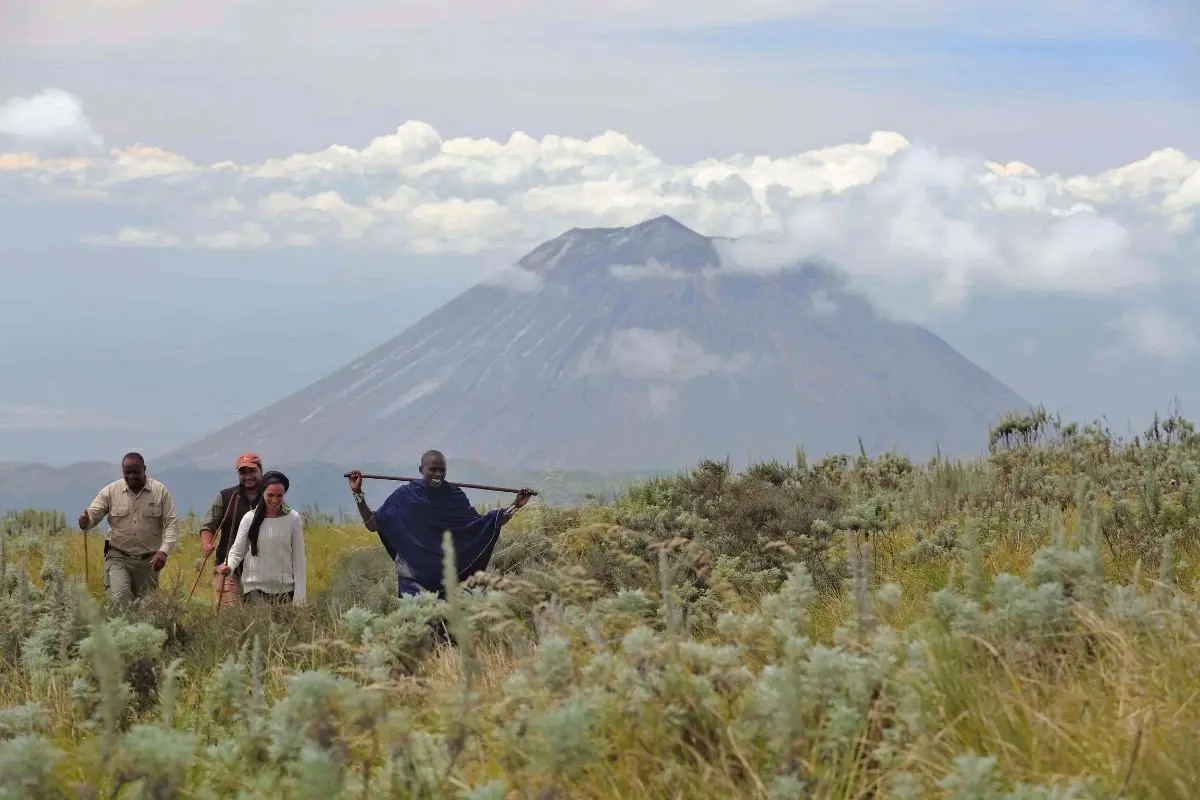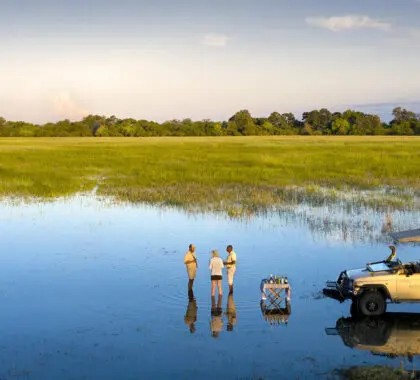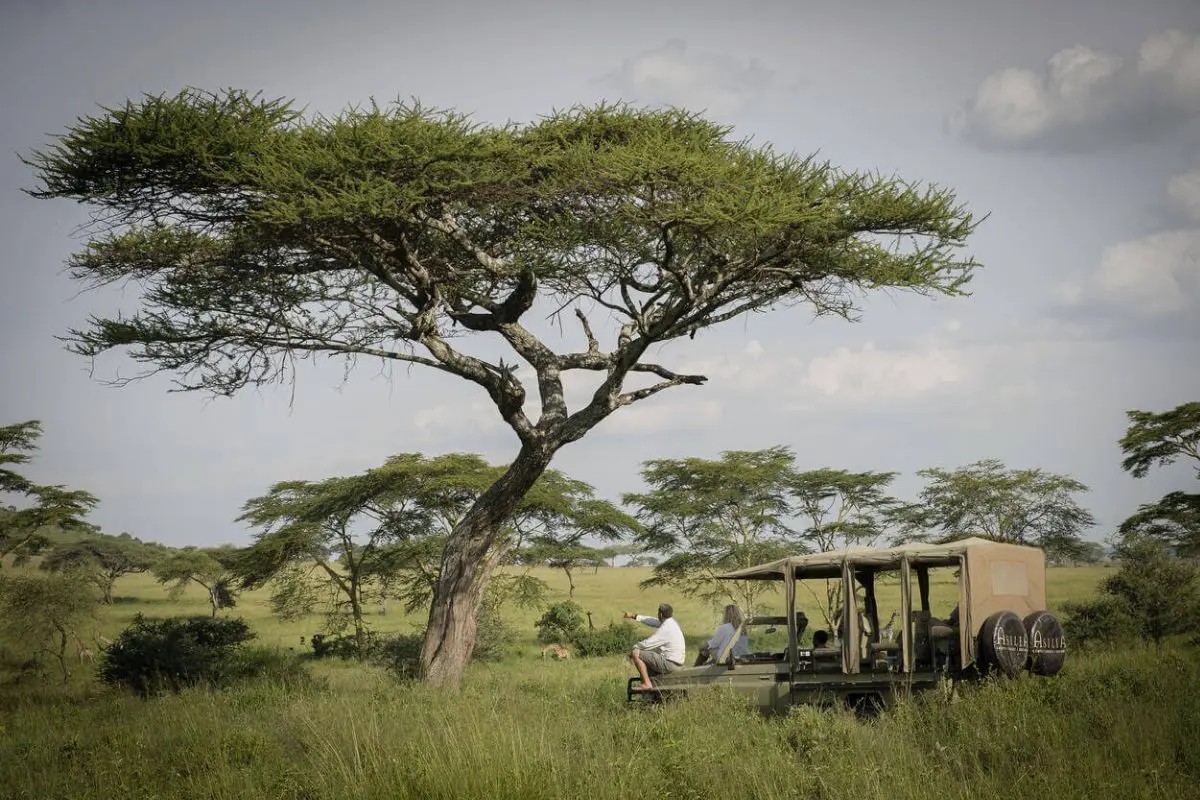Planning an African adventure? Many travelers are wondering, “Can You Travel To Africa Without Covid Vaccinations?” TRAVELS.EDU.VN understands your desire to explore this incredible continent and is here to provide up-to-date information and assistance. We aim to help you navigate travel requirements and plan a safe, unforgettable journey. Explore this guide for insights into travel requirements, alternative destinations, and how TRAVELS.EDU.VN can make your dream trip a reality.
1. Understanding Current Travel Regulations for Africa
Navigating international travel can be tricky, especially with ever-changing health regulations. Many countries in Africa have adjusted their entry requirements related to COVID-19. It’s vital to stay informed to ensure a smooth travel experience.
1.1 Entry Requirements Across African Countries
Each African nation sets its own entry rules. Some may still require proof of COVID-19 vaccination, while others have relaxed their regulations. Here’s a breakdown:
- Countries Requiring Vaccination: Some nations might still mandate COVID-19 vaccination for entry, especially for specific age groups. Check the official tourism website of your intended destination for the most current guidelines.
- Countries Without Vaccination Requirements: Several African countries have eliminated the need for COVID-19 vaccination. However, they might require a negative PCR test taken within a specific timeframe before departure.
- Testing Requirements: Even if vaccination isn’t mandatory, be prepared for potential testing requirements. These can include pre-departure PCR tests or on-arrival rapid antigen tests.
Table 1: Sample of COVID-19 Entry Requirements (as of October 26, 2024 – Subject to Change)
| Country | Vaccination Required? | Testing Required? (Unvaccinated) | Additional Notes |
|---|---|---|---|
| South Africa | No | No | Temperature screening may be in place. |
| Kenya | No | No | May require proof of yellow fever vaccination depending on your travel history. |
| Tanzania | No | No | Zanzibar follows the same regulations. |
| Botswana | No | No | Travelers may be asked about their travel history and health status. |
| Namibia | No | No | Travelers may be asked about their travel history and health status. |
| Morocco | No | No | Proof of funds may be required |
Disclaimer: Entry requirements can change rapidly. Always verify the latest information with the embassy or official tourism website of your destination country before traveling.
1.2 Resources for Up-to-Date Information
Staying informed is crucial. Here are reliable resources:
- Embassies and Consulates: The most accurate and current information comes directly from the embassy or consulate of the African country you plan to visit.
- Official Tourism Websites: These websites provide detailed entry requirements, health advisories, and travel tips.
- IATA Travel Centre: The International Air Transport Association (IATA) offers a comprehensive database of travel regulations worldwide.
- TRAVELS.EDU.VN: We provide the latest travel updates and can assist you in planning your trip according to current regulations.
2. Exploring Africa Without Mandatory COVID-19 Vaccinations
If you prefer not to get vaccinated or are unable to do so for medical reasons, you can still explore many African destinations.
2.1 Destinations with Relaxed Entry Requirements
Several African countries have eased their COVID-19 related travel restrictions, allowing unvaccinated travelers to enter without mandatory vaccination.
- Southern Africa: South Africa, Namibia and Botswana are popular choices with stunning landscapes and wildlife.
- East Africa: Tanzania and Kenya offer incredible safari experiences and have generally relaxed entry rules.
- North Africa: Morocco offers a rich cultural experience and has removed most COVID-19 related restrictions.
2.2 Alternative Travel Options
Consider focusing on countries with more lenient entry requirements or exploring specific regions within a country that might have different regulations.
- Focus on Specific Regions: Some regions within a larger country may have different rules. Researching regional travel policies can open up more possibilities.
- Consider Overland Travel: If you’re already in Africa, overland travel between countries with similar regulations might be a viable option.
3. Essential Health and Safety Tips for Traveling in Africa
Regardless of vaccination status, prioritize your health and safety while traveling in Africa.
3.1 General Health Precautions
- Consult Your Doctor: Schedule a visit with your healthcare provider well in advance of your trip. Discuss necessary vaccinations (like yellow fever), malaria prevention, and any personal health concerns.
- Travel Insurance: Ensure you have comprehensive travel insurance that covers medical emergencies, evacuation, and trip cancellations.
- Medication: Pack an adequate supply of any prescription medications you need, along with copies of your prescriptions.
3.2 COVID-19 Safety Measures
Even in countries with relaxed entry rules, it’s wise to take precautions to protect yourself and others.
- Hygiene: Practice frequent hand washing with soap and water or use hand sanitizer.
- Masks: Carry a supply of face masks and wear them in crowded indoor settings or where required by local regulations.
- Social Distancing: Maintain a safe distance from others whenever possible.
3.3 Additional Health Considerations
Africa presents unique health challenges. Be prepared for common travel-related illnesses and take necessary preventive measures.
- Malaria: If traveling to malaria-prone areas, take antimalarial medication as prescribed by your doctor. Use mosquito repellent, wear long sleeves and pants in the evening, and sleep under a mosquito net.
- Food and Water Safety: Drink bottled or purified water. Avoid ice in drinks and be cautious about eating raw or undercooked food.
- Sun Protection: Protect your skin from the strong African sun by wearing sunscreen, a hat, and sunglasses.
- Insect Bites: Use insect repellent to prevent bites from mosquitoes, ticks, and other insects.
 walking in the shadow of ol doniyo lengai
walking in the shadow of ol doniyo lengai
4. Planning Your African Safari with TRAVELS.EDU.VN
TRAVELS.EDU.VN is dedicated to creating seamless and unforgettable travel experiences. We’re here to help you navigate the complexities of planning a trip to Africa, especially with the evolving health regulations.
4.1 Customized Itineraries
We tailor each itinerary to your preferences, ensuring you experience the best of Africa while adhering to your comfort level regarding health and safety.
- Expert Advice: Our travel experts provide up-to-date information on entry requirements, health advisories, and local conditions.
- Flexible Booking: We offer flexible booking options, allowing you to adjust your travel dates or destinations if necessary.
- Personalized Support: From pre-trip planning to on-the-ground assistance, we’re here to support you every step of the way.
4.2 Accommodation and Transportation
We carefully select accommodations and transportation options that prioritize your health and safety.
- Trusted Partners: We work with reputable hotels, lodges, and tour operators that adhere to strict hygiene standards.
- Private Transportation: Opt for private transportation to minimize contact with others.
- Small Group Tours: Choose small group tours to ensure a more intimate and controlled environment.
4.3 Activities and Experiences
We offer a wide range of activities and experiences that allow you to explore Africa’s natural beauty and cultural richness while minimizing potential health risks.
- Outdoor Adventures: Enjoy safaris, nature walks, and other outdoor activities that allow for social distancing.
- Cultural Immersion: Engage in cultural experiences that respect local customs and traditions.
- Responsible Tourism: We promote responsible tourism practices that benefit local communities and protect the environment.
5. The Allure of African Safaris: What Awaits You
Africa’s allure lies in its untamed wilderness, diverse cultures, and unparalleled wildlife encounters. Whether you’re a seasoned traveler or a first-time visitor, an African safari promises an unforgettable adventure.
5.1 Wildlife Encounters
Witness the “Big Five” (lion, elephant, buffalo, leopard, and rhinoceros) in their natural habitat. Observe herds of zebras and wildebeests migrating across the plains. Marvel at the grace of giraffes and the playful antics of monkeys.
- Iconic National Parks: Explore renowned national parks like Kruger National Park in South Africa, Serengeti National Park in Tanzania, and Maasai Mara National Reserve in Kenya.
- Unique Wildlife Experiences: Consider visiting lesser-known destinations like Etosha National Park in Namibia or Chobe National Park in Botswana for a more secluded wildlife experience.
 The Best Places to Go on Safari in 2025
The Best Places to Go on Safari in 2025
5.2 Cultural Experiences
Immerse yourself in the rich cultures of Africa. Visit local villages, interact with tribal communities, and learn about traditional customs and beliefs.
- Tribal Encounters: Witness the vibrant dances and ceremonies of the Maasai people in Kenya and Tanzania. Learn about the ancient traditions of the Himba people in Namibia.
- Historical Sites: Explore historical sites like the Great Zimbabwe ruins or the ancient city of Lalibela in Ethiopia.
5.3 Natural Wonders
Discover Africa’s breathtaking landscapes, from the vast savannas to the towering mountains and pristine coastlines.
- Victoria Falls: Witness the awe-inspiring power of Victoria Falls, one of the Seven Natural Wonders of the World.
- Mount Kilimanjaro: Hike or climb Mount Kilimanjaro, Africa’s highest peak, for an unforgettable adventure.
- Zanzibar Beaches: Relax on the white-sand beaches of Zanzibar and soak up the tropical sunshine.
6. Addressing Common Concerns about Traveling to Africa
Traveling to Africa can evoke a mix of excitement and apprehension. Addressing common concerns can help ease your mind and ensure a more enjoyable trip.
6.1 Safety and Security
Safety is a top priority for travelers. Researching your destination, taking precautions, and staying informed can help minimize risks.
- Travel Advisories: Check travel advisories issued by your government for any specific warnings or recommendations.
- Local Advice: Seek advice from local guides, tour operators, and hotel staff regarding safety and security.
- Common Sense: Exercise common sense and be aware of your surroundings. Avoid walking alone at night in unfamiliar areas and keep valuables out of sight.
6.2 Health Risks
Africa presents unique health challenges. Taking preventive measures and seeking medical advice can help protect your health.
- Vaccinations: Consult your doctor about recommended vaccinations for your destination.
- Malaria Prevention: Take antimalarial medication as prescribed and use mosquito repellent.
- Food and Water Safety: Drink bottled or purified water and be cautious about eating raw or undercooked food.
6.3 Cultural Sensitivity
Respecting local customs and traditions is essential for a positive travel experience.
- Dress Code: Dress modestly when visiting religious sites or conservative areas.
- Photography: Ask for permission before taking photos of people.
- Tipping: Tipping is customary in many African countries. Research appropriate tipping amounts for different services.
7. Debunking Myths about African Travel
Many misconceptions surround travel to Africa. Separating fact from fiction can help you make informed decisions and plan a more enjoyable trip.
7.1 Myth: Africa is Unsafe
While some areas of Africa face security challenges, many destinations are safe and welcoming to tourists.
- Fact: Popular tourist destinations like South Africa, Kenya, Tanzania, and Botswana have well-established tourism infrastructure and security measures.
7.2 Myth: Africa is All the Same
Africa is a vast and diverse continent with a wide range of cultures, landscapes, and experiences.
- Fact: Each African country has its unique identity, offering distinct attractions and activities.
7.3 Myth: Africa is Only for Adventure Travelers
While Africa offers incredible adventure opportunities, it also caters to travelers of all ages and interests.
- Fact: You can find luxurious accommodations, family-friendly activities, and relaxing beach vacations in Africa.
8. Preparing for Your Trip: A Checklist
Proper preparation is key to a successful and stress-free African adventure.
8.1 Before You Go
- Book Flights and Accommodations: Secure your flights and accommodations well in advance, especially during peak season.
- Obtain Visas: Check visa requirements for your destination and apply for visas if necessary.
- Purchase Travel Insurance: Invest in comprehensive travel insurance that covers medical emergencies, evacuation, and trip cancellations.
- Consult Your Doctor: Discuss necessary vaccinations, malaria prevention, and any personal health concerns with your healthcare provider.
- Pack Appropriately: Pack lightweight, breathable clothing, comfortable walking shoes, sunscreen, insect repellent, and a hat.
- Make Copies of Important Documents: Make copies of your passport, visa, travel insurance, and other important documents and store them separately from the originals.
8.2 During Your Trip
- Stay Informed: Stay updated on local news, weather conditions, and health advisories.
- Follow Safety Guidelines: Adhere to safety guidelines provided by local authorities and tour operators.
- Respect Local Customs: Dress modestly when visiting religious sites or conservative areas and ask for permission before taking photos of people.
- Stay Hydrated: Drink plenty of bottled or purified water to avoid dehydration.
- Be Mindful of Your Belongings: Keep valuables out of sight and be aware of your surroundings.
9. What to Pack for Your African Adventure
Packing the right gear can make a big difference in your comfort and enjoyment.
9.1 Clothing
- Lightweight and Breathable Fabrics: Choose clothing made from cotton, linen, or moisture-wicking synthetic fabrics.
- Neutral Colors: Opt for neutral colors like khaki, olive green, and beige to blend in with the environment.
- Long Sleeves and Pants: Pack long-sleeved shirts and pants to protect against mosquitoes and the sun.
- Warm Layers: Bring a sweater or jacket for cool evenings.
- Comfortable Walking Shoes: Choose sturdy and comfortable walking shoes for safaris and nature walks.
- Swimsuit: If you plan to visit beaches or swimming pools.
9.2 Accessories
- Sunscreen: Pack high-SPF sunscreen to protect your skin from the strong African sun.
- Insect Repellent: Choose an insect repellent containing DEET to protect against mosquitoes and other insects.
- Hat: Bring a wide-brimmed hat to shield your face and neck from the sun.
- Sunglasses: Protect your eyes with sunglasses that block UVA and UVB rays.
- Binoculars: Bring binoculars for wildlife viewing.
- Camera: Capture your memories with a camera and extra batteries.
- Headlamp or Flashlight: Useful for navigating in the dark.
- Reusable Water Bottle: Stay hydrated and reduce plastic waste by bringing a reusable water bottle.
9.3 Medications and First Aid
- Prescription Medications: Pack an adequate supply of any prescription medications you need, along with copies of your prescriptions.
- Over-the-Counter Medications: Bring over-the-counter medications for common ailments like headaches, stomachaches, and allergies.
- First Aid Kit: Include bandages, antiseptic wipes, pain relievers, and any other necessary first aid supplies.
10. Capturing Memories: Photography Tips for Africa
Africa offers endless opportunities for stunning photographs. Here are some tips to help you capture your memories.
10.1 Gear
- Camera: Choose a camera with a good zoom lens for wildlife photography.
- Lenses: Consider bringing a wide-angle lens for landscapes and a telephoto lens for wildlife.
- Extra Batteries and Memory Cards: Ensure you have enough power and storage space for your photos.
- Tripod: A tripod can help you capture sharp images in low light.
10.2 Techniques
- Golden Hour: Shoot during the golden hour (early morning and late afternoon) for the best light.
- Rule of Thirds: Use the rule of thirds to create visually appealing compositions.
- Leading Lines: Use leading lines to draw the viewer’s eye into the photo.
- Fill Flash: Use fill flash to brighten shadows in sunny conditions.
- Action Shots: Capture action shots of wildlife in motion.
- Portraits: Ask for permission before taking portraits of people and try to capture their personality.
10.3 Ethical Considerations
- Respect Wildlife: Maintain a safe distance from wildlife and avoid disturbing their natural behavior.
- Respect Local Customs: Ask for permission before taking photos of people and be mindful of their privacy.
- Avoid Exploitation: Avoid paying people to pose for photos in a way that exploits them.
11. Sustainable and Responsible Tourism in Africa
Traveling sustainably and responsibly can help protect Africa’s natural and cultural heritage for future generations.
11.1 Environmental Responsibility
- Reduce Your Carbon Footprint: Choose eco-friendly accommodations and activities.
- Conserve Water and Energy: Be mindful of your water and energy consumption.
- Avoid Single-Use Plastics: Bring a reusable water bottle and avoid using single-use plastics.
- Respect Wildlife: Maintain a safe distance from wildlife and avoid disturbing their natural behavior.
- Leave No Trace: Pack out everything you pack in and dispose of waste properly.
11.2 Social Responsibility
- Support Local Communities: Choose locally owned businesses and services.
- Respect Local Customs: Dress modestly when visiting religious sites or conservative areas and ask for permission before taking photos of people.
- Learn About Local Culture: Take the time to learn about the local culture and traditions.
- Be a Responsible Consumer: Avoid buying products made from endangered species or that exploit local communities.
- Give Back: Consider donating to local charities or volunteering your time.
12. Frequently Asked Questions (FAQs)
Q1: Can I travel to Africa without a COVID-19 vaccination?
Yes, many African countries have relaxed their COVID-19 entry requirements, allowing unvaccinated travelers. However, it’s essential to check the specific requirements of your destination country.
Q2: What are the current entry requirements for South Africa?
As of [insert date], South Africa does not require proof of COVID-19 vaccination or a negative PCR test for entry.
Q3: Do I need a yellow fever vaccination for my trip to Africa?
Yellow fever vaccination requirements vary depending on the country you plan to visit and your travel history. Consult your doctor or a travel clinic for personalized advice.
Q4: Is malaria a risk in Africa?
Malaria is a risk in many parts of Africa. Take antimalarial medication as prescribed by your doctor and use mosquito repellent.
Q5: How can I stay safe while traveling in Africa?
Stay informed about local conditions, follow safety guidelines provided by local authorities and tour operators, and exercise common sense.
Q6: What should I pack for my African safari?
Pack lightweight, breathable clothing, comfortable walking shoes, sunscreen, insect repellent, a hat, and a camera.
Q7: How can I travel sustainably in Africa?
Choose eco-friendly accommodations and activities, conserve water and energy, avoid single-use plastics, and support local communities.
Q8: What is the best time to visit Africa for a safari?
The best time to visit Africa for a safari depends on the specific destination and your preferences. Generally, the dry season (May to October) is considered the best time for wildlife viewing.
Q9: How far in advance should I book my African safari?
It’s recommended to book your African safari at least 6-12 months in advance, especially if you’re traveling during peak season.
Q10: How can TRAVELS.EDU.VN help me plan my trip to Africa?
TRAVELS.EDU.VN offers customized itineraries, expert advice, flexible booking options, and personalized support to help you plan a seamless and unforgettable African adventure.
13. Contact TRAVELS.EDU.VN for Your African Adventure
Ready to embark on your dream African safari? Contact TRAVELS.EDU.VN today to start planning your personalized adventure.
- Address: 123 Main St, Napa, CA 94559, United States
- WhatsApp: +1 (707) 257-5400
- Website: TRAVELS.EDU.VN
Let TRAVELS.EDU.VN guide you through the wonders of Africa, ensuring a safe, memorable, and enriching travel experience. Discover the magic of the continent with us!
 central serengeti
central serengeti
Let travels.edu.vn turn your dream of exploring the African continent into a reality. Contact us today for expert guidance and personalized travel planning. We will address any concerns and create an itinerary that prioritizes both safety and adventure! Don’t wait – your journey to Africa awaits!
